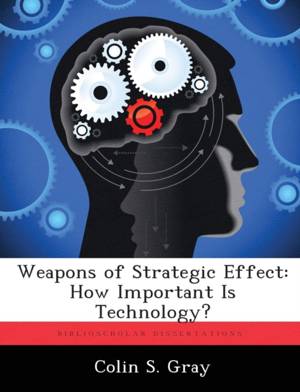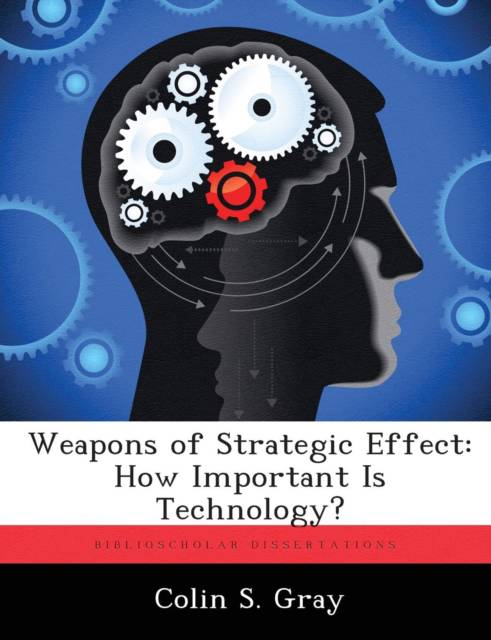
- Afhalen na 1 uur in een winkel met voorraad
- Gratis thuislevering in België vanaf € 30
- Ruim aanbod met 7 miljoen producten
- Afhalen na 1 uur in een winkel met voorraad
- Gratis thuislevering in België vanaf € 30
- Ruim aanbod met 7 miljoen producten
Zoeken
€ 78,95
+ 157 punten
Omschrijving
I am grateful to Grant T. Hammond, Director of CSAT, for the opportunity to serve as a Visiting Fellow in 2000-2001 and to contribute this Occasional Paper. Given the technical focus of most of the Papers, I though it would be useful, by way of some contrast, to offer a wide ranging exploration of the relationship between technology and war. The paper draws upon several research efforts which have yet to see the light of day in published form. Most especially, the paper draws upon the theory and historical case studies developed in my forthcoming book, Strategy for Chaos: RMA Theory and the Evidence of History. Also, I have drawn upon my contribution ("Fuller's Folly: Technology, Strategic Effectiveness, and the Quest for Dominant Weapons") to an as yet unpublished collection of essays, A.J. Bacevich and B.R. Sullivan, eds., The Limits of Technology in Modern War. The central organizing idea behind this paper is that technology and war (or, indeed, peace) are linked by the consequence that we understand as strategic effectiveness. Technology in weapon systems, and in other military machines as well as in relevant a civilian systems, delivers its payoff in the effectiveness secured by the threat or use of force for the purposes of high policy. The playing field is strategic behavior and technology is just one, albeit a necessary one, among the players that collectively deliver the result.
Specificaties
Betrokkenen
- Auteur(s):
- Uitgeverij:
Inhoud
- Aantal bladzijden:
- 64
- Taal:
- Engels
Eigenschappen
- Productcode (EAN):
- 9781288408887
- Verschijningsdatum:
- 6/12/2012
- Uitvoering:
- Paperback
- Formaat:
- Trade paperback (VS)
- Afmetingen:
- 189 mm x 246 mm
- Gewicht:
- 131 g

Alleen bij Standaard Boekhandel
+ 157 punten op je klantenkaart van Standaard Boekhandel
Beoordelingen
We publiceren alleen reviews die voldoen aan de voorwaarden voor reviews. Bekijk onze voorwaarden voor reviews.











